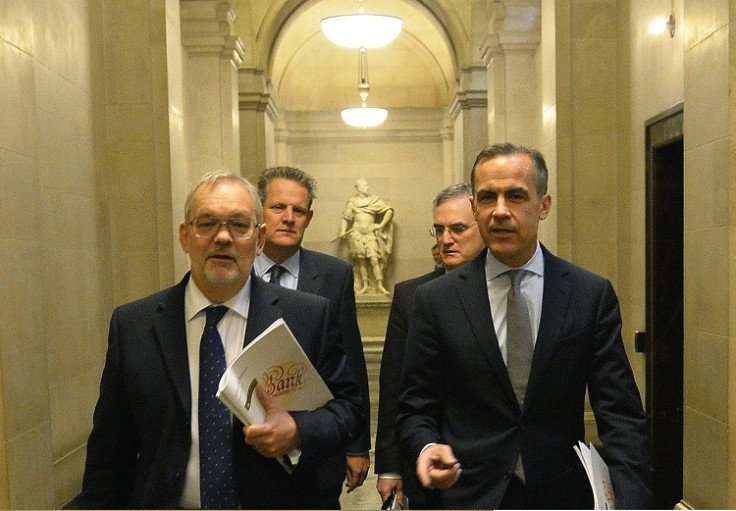Bank of England Deputy Governor Signs off With 'Eerie' Warning on UK Economy

The Bank of England's outgoing deputy governor Charlie Bean has used his farewell speech to warn that certain elements of financial markets are "eerily reminiscent of what happened in the run-up to the crisis".
He also said that while he's confident the economy is relatively in stable condition, the economic recovery may face "potholes on the way to exit".
Bean's warning centred on the renewed search for yield and appetite for carry trades among bankers, spawned by "historically low" implied volatility (the estimated volatility of a security's price) and low interest rates in advanced economies
Carry trading is essentially borrowing at a low interest rate, to invest in an asset with a higher rate of return. Pre-2008, an influx of this practice helped push asset prices to unsustainably high levels.
He continued: "Episodes like the 'taper tantrum', which produced a short-lived bout of volatility but no major disruption may also be contributing to a sense of complacency and an underestimation of market risk by investors."
Bean also warned of the risks posed by "fault lines" in the Chinese financial sector and the ongoing situation in Ukraine.
Speaking to the London School of Economics, where he worked before joining the bank 14 years ago, Bean said his time had been defined by two distinct eras: "Seven years of unparalleled macroeconomic stability have been followed by seven years characterised by financial instability and a deep recession," he said.
He defended the role of the monetary policy committee in the run up to the crisis, saying: "The experience of the past few years does appear to suggest that monetary policy ought to take greater account of financial stability concerns. Ahead of the crisis, Bill White and colleagues at the Bank for International Settlements consistently argued that when leverage was becoming excessive and/or asset prices misaligned, central bankers ought to 'lean against the wind' by keeping interest rates higher than necessary to meet the price stability objective in the short run."
Bean reiterated governor Mark Carney's statement from last week that the economy is just now returning to normality and that any rate rise, when it comes, will be gradual. He also confirmed the bank's line that rates "should be seen as just an emergency weapon for use when policy rates reach the effective lower bound".
Bean became the bank's deputy governor on 1 July 2008, just as the financial crisis began in earnest. Prior to this, he was chief economist for eight years.
He signed off by drawing a parallel between central banking and a renowned biblical "bureaucrat".
"In Genesis, following his interpretation of Pharaoh's Dream, Joseph is made the most powerful bureaucrat in Egypt, in which position he ensures that enough grain is hoarded during the seven years of plenty to provide sustenance during the seven years of famine that followed. That is a parable on the value of prudence that the central bankers of the future would do well not to forget," he said.
© Copyright IBTimes 2025. All rights reserved.






















